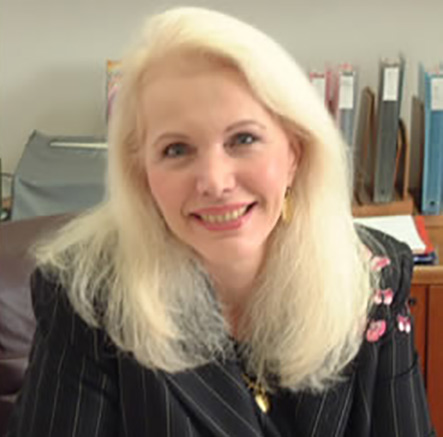Preparing Leaders to Shape the Nursing Field: TC’s top-ranked Nurse Executive program equips skilled professionals to set the pace

Students in TC's Program for Executive Nurses become nursing school deans, nursing directors and at major hospitals and professors at top universities. Read two of their stories:
Teachers College’s Executive Program for Nurses prepares people who are capable of not merely reacting to those forces, but shaping them. Under the leadership of its director, Professor of Education Elaine La Monica Rigolosi, the program, founded in 1980, ranks first in New York and sixth in the nation in Clinical Nurse Leadership and Nursing Administration. The program’s alumni include major figures in the field such as Gail Weissman, who held nursing leadership positions at Massachusetts General Hospital, Memorial Sloan-Kettering Cancer Center and Mt. Sinai Medical Center, and Kim Mendez, System Chief Nursing Executive at NYC Health & Hospitals. Today’s graduates go on to become deans of prestigious nursing schools, nursing directors at major hospitals and professors at top universities.
[ Learn more about programs in the Department of Organization and Leadership ]

“Our graduates, above all, must be able to work and communicate directly with people. They have to serve, face to face, as role models for those whom they lead or teach, so we believe that our teaching must be conducted that way, too.”
— Elaine La Monica Rigolosi
“We don’t water these courses down,” she says of the program’s multidisciplinary offerings. “You won’t find offerings like ‘statistics for nurses’ here.”
But what really sets the program apart, Rigolosi says, is its commitment to a simple but ever more rarely practiced principle: That education is best conducted face to face, and especially so when it relates to leadership and teaching.
“Our graduates, above all, must be able to work and communicate directly with people,” says Rigolosi, who is also the developer of a widely used rating scale to help managers measure their own empathy. “They have to serve, face to face, as role models for those whom they lead or teach, so we believe that our teaching must be conducted that way, too.”
Another nursing program at TC – the College’s Nursing Education doctoral program, launched in Fall 2016 in the Department of Health & Behavior Studies – is conducted exclusively online. “Online learning is a medium that has expanded education’s reach and enabled dedicated professionals to expand their skills and further their careers when they are unable to attend classes in person,” Rigolosi says. “So our two programs are not in competition with one another There’s a critical shortage of highly skilled nursing educators and leaders, and both programs reflect an intense focus on preparing a broader expanse of nurses to fill that gap. And that’s what you’d expect at TC, which, after all, was where the field of nursing education was created.” — Robert Florida
Published Tuesday, Sep 26, 2017